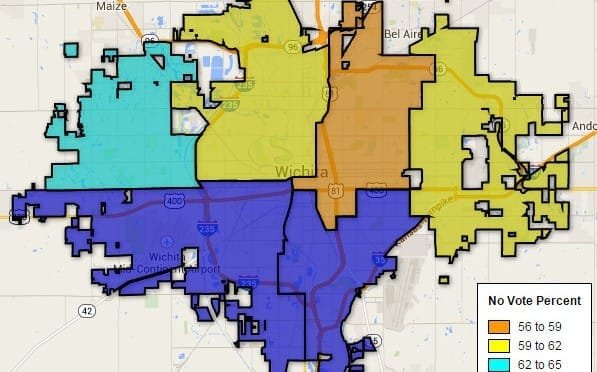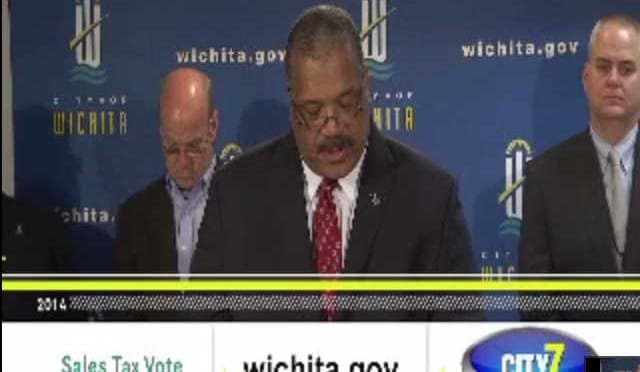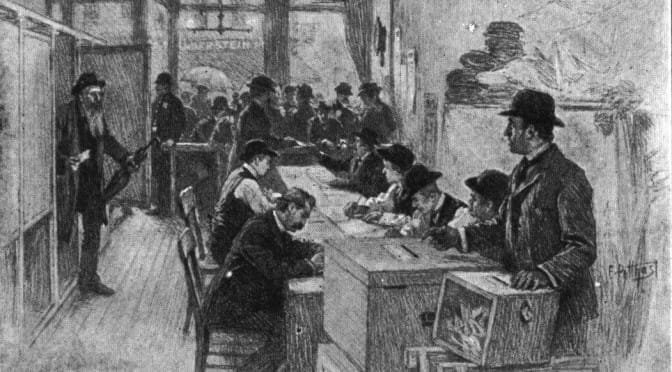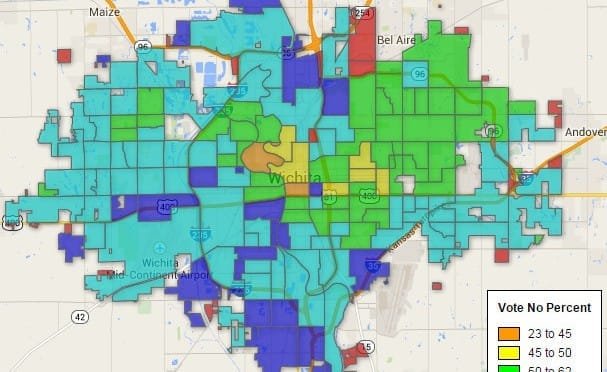Tag: Elections
-
Karl Peterjohn at Wichita Pachyderm Club
Sedgwick County Commissioner Karl Peterjohn addressed members and guests of the Wichita Pachyderm Club on November 14, 2014.
-

Richard Ranzau, slayer of cronyism
In Sedgwick County, an unlikely hero emerges in the battle for capitalism over cronyism.
-

WichitaLiberty.TV: Results of and reflection on the Wichita sales tax election and campaign
In this episode of WichitaLiberty.TV: We’ll look at the results of the Wichita sales tax election and what might happen next. Then, we’ll evaluate the Wichita Eagle’s coverage during the campaign. Also, this election raised issues of the privacy of voter data. Episode 65, broadcast November 16, 2014.
-

Wichita sales tax election map by district
Here’s a map I created of the “No” vote percentage by council district.
-

Wichita Mayor Carl Brewer on citizen engagement
Wichita Mayor Carl Brewer and the city council are proud of their citizen engagement efforts. Should they be proud?
-
Wichita Mayor Carl Brewer should stand down on tax projects
Despite the stunning defeat of Wichita Mayor Carl Brewer’s proposed sales tax increase, and the fact that in April Brewer’s term limit will expire, he and the City Council are determined to take action in financing the projects that the Wichita voters just shot down, writes Mike Shatz.
-
Sedgwick County Commission precinct map, November 4, 2014
Here’s a map I created of the vote percentage received by Republican candidates by precinct in the two Sedgwick County Commission districts that were contested.
-

Voter privacy a subject ready for debate
Campaign methods used in the recent election may spark debate on the information government makes available about voters and their voting behavior.
-
Secretary of State vote in Sedgwick County, November 4, 2014
Here’s a map I created of the vote percentage Kansas Secretary of State Kris Kobach received by precinct.
-
Governor vote in Sedgwick County, November 4, 2014
Here’s a map I created of the vote percentage Governor Sam Brownback received by precinct.
-

Wichita sales tax election map
Here’s a map I created of the “No” vote percentage by precinct.
-

In election coverage, The Wichita Eagle has fallen short
Citizens want to trust their hometown newspaper as a reliable source of information. The Wichita Eagle has not only fallen short of this goal, it seems to have abandoned it.